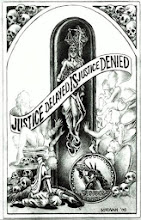
Bush views force in Iran as an option
-- President Bush said he could consider using force as a last resort against Iran if it refuses to comply with international demands to halt its nuclear program, pointedly noting he has already used force to protect U.S. security.
Mr. Bush's statement during an interview on Israeli TV late Friday was unusually harsh. He previously said diplomacy should be used to persuade Iran to suspend its nuclear program, and if that failed, then the U.N. Security Council should impose sanctions.
The U.S. government and others fear Iran's nuclear work is secretly designed to produce nuclear weapons. Iran's leaders deny that, saying it is only for the generation of electricity.
In the interview, Mr. Bush said the United States and Israel "are united in our objective to make sure that Iran does not have a weapon." But, he said, if diplomacy fails, "all options are on the table."
"The use of force is the last option for any president. You know, we've used force in the recent past to secure our country," he said.
German Chancellor Gerhard Schroeder, one of the most prominent European opponents of the U.S.-led war on Iraq, told an election rally yesterday that the threat of force was not acceptable.
In what appeared to be a reference to Mr. Bush's remarks, Mr. Schroeder told the crowd in his home city of Hanover: "Let's take the military option off the table. We have seen it doesn't work."
Iran angered the European Union and the United States by resuming uranium conversion at its Isfahan plant Monday after rejecting an EU offer of political and economic incentives in return for giving up its nuclear program.
Tehran says it aims only to produce electricity and denies Western accusations it is seeking a nuclear bomb.
The European Union -- represented by Britain, France and Germany -- has been trying to find a compromise for two years between arch foes Iran and the United States.
Washington last week expressed a willingness to give negotiations on Iran's suspected nuclear-weapons program more time before getting tougher with the country, and Mr. Bush made clear he still hoped for a diplomatic solution.
"In all these instances, we want diplomacy to work, and so we're working feverishly on the diplomatic route, and we'll see if we're successful or not," Mr. Bush said in the Israeli interview.
Mr. Bush has also previously said that the United States has not ruled out the option of military strikes. But U.S. officials have played down press speculation earlier this year they were planning military action against Iran.
French Foreign Minister Philippe Douste-Blazy said Friday that negotiations were still likely with Iran on the condition the Iranians suspend their nuclear activities.
Members of the governing board of the International Atomic Energy Agency (IAEA) unanimously called on Iran on Thursday to halt sensitive atomic work.
If Iran continues to defy global demands, another IAEA meeting likely will be held, at which both Europe and the United States will push for a referral to the U.N. Security Council for possible sanctions.
Mr. Schroeder, whose Social Democrats are lagging the opposition conservatives in opinion polls in advance of elections next month, said he was worried about developments in Iran because no one wants Tehran to possess atomic weapons.
"The Europeans and the Americans are united in this goal. Up to now, we were also united in the way to pursue this," he said.
Mr. Schroeder's opposition to the Iraq war was seen as a decisive factor in his unexpected victory in the 2002 general election, which he won narrowly after coming from behind.
But his critical stance caused serious ruptures in Germany's traditionally strong relations with the United States.


0 Comments:
Post a Comment
<< Home